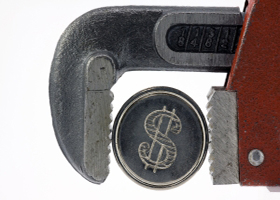


What does he find? Ratings do show sensitivity to crisis situations – and that negative reaction to downgrades from the market is much more marked during crisis than it is during calm.
The findings could be interesting for investors – and especially for regulators who might exercise caution when considering how to use credit ratings going forward. The results also hint that credit ratings could exacerbate an already tough situation for companies facing difficult economic conditions.
Abstract:
This paper studies the behavior of Credit Rating Agencies both in times of credit crunch and calm. In particular, I examine whether or not the rating agencies differ in their propensity to downgrade firms during times of financial crisis, and especially, times of credit crunch. Having established that, I study the stock market reaction to rating changes with a focus on downgrades to see whether or not investors react differently to the ratings happening during the times of calm and those influenced by the state of the economy and credit crunches to identify any changes in investors’ behavior. According to the findings, recommendations are made to both investors and regulators; for investors, it necessitates further investigation of the creditworthiness of the downgraded firms and might help finding investment opportunities, and for regulators, cautious approach might be needed in incorporating the credit ratings in the regulatory frameworks to avoid the creation of a vicious circle of bankruptcy and credit crunch in markets in the times of financial crisis. Download the full paper.
